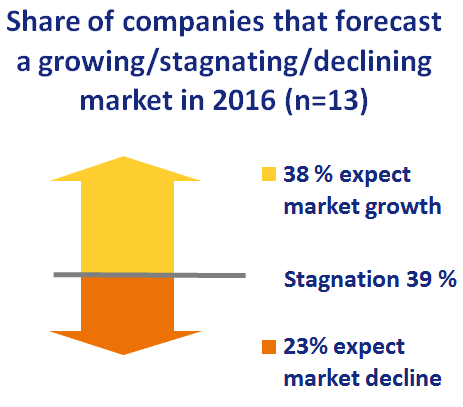

Portugal: New Government with Good Intentions but Lack of Action
 After a politically unstable last quarter of 2015, Portugal’s path for the next years seems to be finally set. The new socialist government, led by António Costa, took office by the end of November and brought back the old promise of supporting renewable energy sources. At least, this is what the government programme shows, the intention to encourage solar thermal use. The industry looks slightly more optimistic into 2016. According to the ISOL Index survey carried out in September 2015, more than a third of the participating 13 solar thermal system suppliers in Portugal expect a growing market, while 39 % expect a stable one this year.
After a politically unstable last quarter of 2015, Portugal’s path for the next years seems to be finally set. The new socialist government, led by António Costa, took office by the end of November and brought back the old promise of supporting renewable energy sources. At least, this is what the government programme shows, the intention to encourage solar thermal use. The industry looks slightly more optimistic into 2016. According to the ISOL Index survey carried out in September 2015, more than a third of the participating 13 solar thermal system suppliers in Portugal expect a growing market, while 39 % expect a stable one this year. Source: solrico
VAT reduction from 23 % to 13 % under discussion
In the official document of the new government programme, the support of solar thermal energy is part of a wider national strategy focusing on urban renovation, a carbon-neutral economy and a more prominent role of the country as a leader in sustainable energy transition. Besides the intentions stated in the programme, the government has not yet announced any specific measures to realise those goals. There is only “the feeling that socialist governments are pro solar energy,” confirms Victor Júlio, Vice President Solar Thermal at the national solar industry association APISOLAR. According to the most current market statistics of the association, the first half of 2015 showed a decrease of 18 % compared to the same period of the previous year. “The end-of-year statistics have not been available yet, so I cannot make a precise statement about the development of the market, but I can tell you that it didn’t get better. On the contrary, the post-electoral political and economic uncertainty did not provide a great stimulus or dynamic to the market by the end of the year,” the expert from APISOLAR regrets.
The country is currently debating the main guidelines of the national 2016 budget and all attention is focused on issues such as public debt management, tax policies, employment or the social security system. One of the electoral promises made by the socialist party is the reduction of the VAT rate from 23 % to 13 % for the restaurant segment. If this measure is put in place and the same does not apply to the renewable energy sector, there might be a “public uproar among installers,” Júlio fears. As APISOLAR’s vice president explains, this is because the increased VAT rate was applied to both sectors in 2012 was introduced with the same explanation, as a binding measure imposed by the Memorandum of Understanding which had been signed between Portugal, the IMF, the European Commission and the European Central Bank.
More information:


